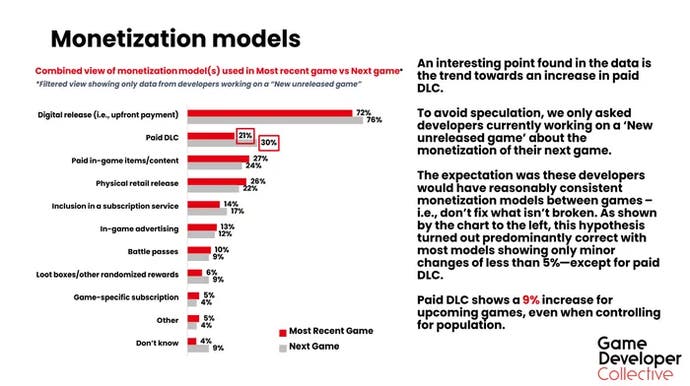According to a new survey by the Game Developer Collective, 70 percent of developers have concerns about the sustainability of live service games.
For the survey, 600 developers were interviewed between February and March this year and defined live-service games as online games featuring frequent updates and in-app purchases.
As shared by Game Developer, 39 percent of participants had mild worries about live-service business models, while 31 percent were very concerned – totalling 70 percent. The remaining participants had either no concerns or were unsure.
The survey further asked participants specifically what those concerns were, with sustainability coming out on top.
Players losing interest in live-service games was the biggest concern, followed by competition with other live-service games and rising user acquisition costs.
A further point in the survey notes that paid DLC is on the rise, with 30 percent of surveyed developers exploring this for their next game – an increase of nine percent compared to their most recent releases.
The majority of developers are also looking at digital releases over physical retail releases, as you might expect.

Earlier this month, Newzoo released its second annual PC and Console Gaming Report, which stated games at least six years old accounted for over 60 percent of playtime in 2023.
The top five of these older games alone accounted for over 25 percent of all playtime: Fortnite, Roblox, League of Legends, Minecraft, and GTA 5.
It’s clear, then, that while live-service games dominate playtime, developers are concerned about competing in the long-term with such mega hits.
Sustainability and lack of growth are also key reasons behind the mass layoffs still affecting the games industry at large.
www.eurogamer.net







